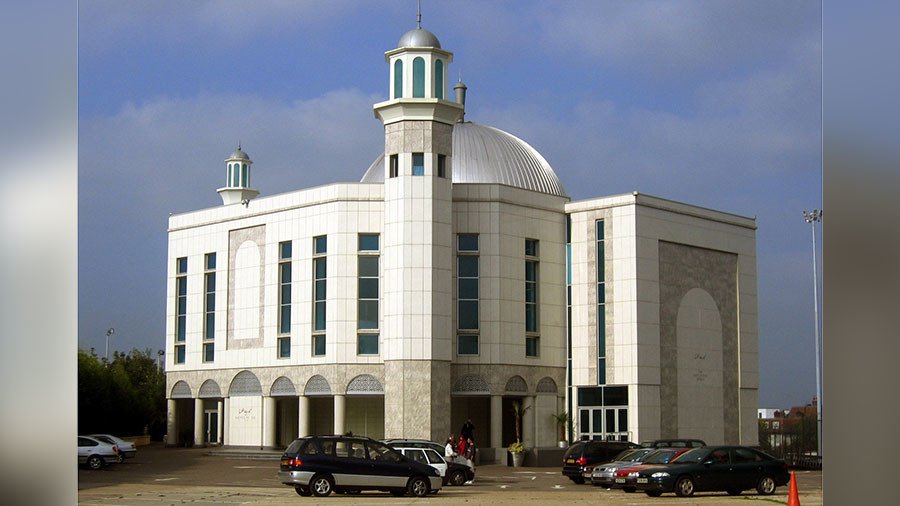Sectarian war on UK turf: Ahmadi mosques introduce extra security to stop terrorist attacks

British members of the Ahmadi sect, seen as heretics by most Muslims, have had to install “airport-style” metal detectors and conduct searches in their mosques to avoid a spillover of religious antagonism that is currently rocking the Islamic world.
“Our community is under attack by extremists but our commitment to peace and love is unshakeable. We appreciate the work of the authorities and they must continue to work diligently for the protection and safety of all citizens,” Farooq Aftab, a member of the Ahmadiyya Muslim Community UK (AMC) told the Times.
“People who don’t think we are Muslims are entitled to their own point of view, but a line must be drawn because violence cannot be justified,” said Aftab. “We can disagree, but we have a right to freedom of religion.
Inspired by the teachings of a 19th century Ahmadis diverge from mainstream Islamic teachings, primarily in believing that Mohammed was not the last prophet of Allah, and in rejecting military jihad. They comprise 30,000 – fewer than 1 percent of UK’s Islamic population – but have had to relocated their headquarters to London to avoid persecution elsewhere.
According to the Times, Met Police is currently investigating harassment of the sect, primarily from mainstream Muslims. The group is on high alert following the killing of a member of a sect, shopkeeper Asad Shah, by Sunni taxi driver Tanveer Ahmed, last year in Glasgow. Hate leaflets calling for members of the sect to be murdered were also found in London, where about half of Ahmadis reside.
“It is, frankly, sickening that some think they can openly harass, intimidate, vandalize and create a sense of fear within minority Muslim communities while shouting out about Islamophobia and the need to challenge it,” said Fiyaz Mughal, director of Faith Matters, an inter-faith NGO.
The Ahmadiyya are particularly alarmed after being caught up in a seemingly petty religious scandal in Pakistan, where the group are regarded as non-Muslims by law, which has resulted in a month of deadly protests.
Earlier this year, the country’s electoral legislation was amended with candidates no longer told to say that they “solemnly swear” that they believe in the finality of Mohammed, to instead saying that they “declare” the same thing.
Radical Sunni clerics took this is a signal of a conspiracy to appease the Ahmadi heretics, and have since demanded the resignation, and broken into the house of Law and Justice Minister Zahid Hamid. The government has said that the original change in wording was a simple “clerical mistake” but this has not quelled the uprising.
With Pakistani emigrants common among both the mainstream sects and the offshoots, Ahmadis, who number millions of members around the world, feel that their places of worship could make for an easy target for a sectarian attack, of a type that has been common not only in Pakistan, but also Indonesia and India.
“Muslims who demand religious freedom for themselves and for other oppressed Muslims around the world have to be consistent and allow religious freedom for other groups such as the Ahmadis,” Usama Hasan of Quilliam, a group that fights against radical Islam, told the Times.
“Their interpretation of the finality of prophethood is far-fetched. However, this does not justify religious persecution, either in this country or anywhere else in the world.”













